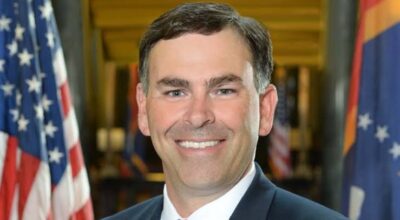Commentary by John Howell
Published 12:00 am Tuesday, July 21, 2009

John Howell Sr.
Two obstacles appear to require resolution before the sale of the Tri-Lakes Medical Center to a new owner can remove the facility from the Chapter 11 bankruptcy in which it has been operated for almost two years.
Hospital officials will today appeal to Batesville’s mayor and aldermen, asking for a reduction in the amount of ad valorem taxes due. When the hospital was bought from the city and county in 2005, the buyers — a non-profit corporation, Physicians and Surgeons Hospital Group — agreed to pay city and county ad valorem taxes as a condition of the sale.
Twenty-one months later, the hospital filed for bankruptcy without having paid any ad valorem taxes whatsoever. Panola County’s Chancery Clerk and Tax Assessor-Collector, as required by statute and prudence, have filed claims with the bankruptcy court seeking back taxes now totaling almost $2 million. The senior lender, UPS Capital Credit, has filed an objection to the tax claims, citing Mississippi state law that specifically exempts non-profit hospitals from ad valorem taxes.
The visit today by hospital officials to city leaders, and the same appeal seeking tax relief
from the Panola County Board of Supervisors, is simply a cut to the chase to remove a deal breaker. Simply put, adding the $2 million tax liability on top of the $14 million that the stalking horse bidder has offered for the hospital will kill the deal.
The hospital officials will remind the mayor and aldermen of the anticipated economic impact of the facility’s continued operation: At least $1 million paid to local vendors each year, over $10 million in charity care provided each year for patients who cannot otherwise pay, almost 400 employees earning almost $14 million annually.
Of the $1 million spent among local vendors, the city’s gas department will get the lion’s share: Over $300,000. Others — from Panola Paper to the NAPA store and many others — will feel direct economic benefit from the hospital’s continued operation.
The $10 million in annual charity care goes to people either not covered at all by medical insurance, Medicare or Medicaid or who don’t have sufficient coverage and can’t pay the difference. These people are our friends and neighbors who might not otherwise receive care if Tri-Lakes is not in operation.
But the greatest economic impact that Tri-Lakes as a viable, ongoing facility has is that of an employer.
This year, the hospital employs 286 full-time and 92 part-time employees who will earn a total $13.8 million. Again, these are our friends and neighbors who are working good jobs providing our health care and who, if Tri-Lakes is not operating as a hospital, might otherwise have to move to find work elsewhere while we go elsewhere for healthcare.
What hospital officials are seeking from Batesville and Panola County is a reduction of its ad valorem taxes to the amount of school taxes only.
That’s the same consideration the city and county would give as incentive to any industry
employing almost 400 people
with a $14 million annual payroll.
It’s even more important for a community hospital that is not only one of the county’s largest employers, but also provides vital, lifesaving infrastructure for the community’s health care.
The second obstacle is the lack of incentive for UPS Capital to see the bankruptcy resolved with a sale. UPS Capital is the bank that loaned the almost $28 million required to purchase the hospital. The United States Department of Agriculture guaranteed 90 percent of the loan.
Now, according to a spokesman the buyer, Alliance Health Partners (AHP),
UPS could come out better
if the hospital is closed
rather than sold. Here’s how.
If the hospital is shut down, UPS Capital should receive approximately $25.2 million from the USDA through its 90 percent loan guarantee.
If the bankruptcy court approves the bid from Alliance Health Partners as buyer, AHP would assume $11 million of the UPS loan, leaving $17 million unpaid. That’s where USDA would step in with its guarantee. USDA would pay for 90 percent of the $17 million or $15.3 million. The AHP repayment of the $11 million coming over the next few years would eventually bring the total paid back to UPS Capital to $26.3 million plus interest, but UPS Capital has to be looking at the advantages of over $25 million now in this uncertain banking climate versus $15.3 now and $11 million eventually.
What’s missing is someone from the USDA to demand
swift resolution in the best
interest of the taxpayer
— that’s the U. S. taxpayer, you and me, but mostly lot of taxpayers who are not even from Mississippi whose tax money underwrites the 90 percent guarantee. If the hospital is sold, taxpayers will be out approximately $15.3 million. If the hospital closes, taxpayers will be out approximately $25.2 million, about $10 million more.
Yet no one from USDA to our knowledge, or to the potential buyer’s knowledge, has been in court demanding that this bankruptcy be resolved in the best interest of the local community and the federal taxpayer. USDA is asleep at the wheel, content to let lawyers from UPS Capital steer this bankruptcy to the benefit of the bank and at the expense of the community.
(Quite a contrast from November, 2005 when Nick Walker, USDA state director for Rural Development, came up here with a dog and pony show that included a poster-size ceremonial check for $27.3 million to consummate the hospital purchase.
Walters was indicted last September for negotiating a loan to a Natchez hospital while holding an interest in a private company that stood to gain from the transaction. Various state directors have come and gone at USDA Rural Development since. A new director has just been appointed to the post that has been held by an acting director since early this year.)
Assuming that USDA will remain MIA during these crucial final stages of bankruptcy, which will determine whether the hospital will be sold or whether it will close its doors, the burden of looking after this community’s best interest falls on the shoulders of U. S. Bankruptcy Judge David Houston.
During the last 23 months Judge Houston has managed to look past smoke, mirrors and legal fog to issue orders that have balanced consideration of the community’s need for a viable, ongoing hospital facility as well as creditors’ needs to be paid. As the bankruptcy appears to be nearing resolution, Panola County and the taxpayers of this nation need Judge Houston’s continued decisive direction to assure that a sale can go through so that the hospital will remain in operation.




